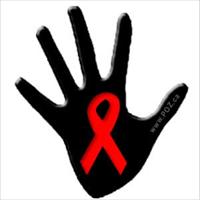GLOBAL: AIDS spending breaks records, but needs more focus

HIV/AIDS funding to low- and middle-income countries reached a record level in 2007, according to a new report by UNAIDS.
AIDS spending by the G8 group of wealthly nations, the European Commission and other donors hit US$ 6.6 billion last year, up from US$ 5.6 billion in 2006. However, despite the largesse, UNAIDS said a US$8.1 billion gap in funding for essential HIV/AIDS programmes remained.
The United States was the largest grant-giver, providing 20 percent of resources in 2007, followed by the United Kingdom. Some non-G8 nations also provided significant assistance, including the Netherlands, Sweden, Australia and Ireland.
The report comes as the G8 - made up of Britain, Canada, France, Germany, Italy, Japan, Russia and the United States - reiterated a commitment they made at the 2005 summit in Gleneagles, Scotland, to spend US$60 billion to fight disease in Africa; the repeated commitment added a five-year timeline to the initiative.
At the G8 summit this week in Hokkaido, Japan, leaders also announced that they would provide 100 million insecticide-treated mosquito nets by 2010 to control the spread of malaria on the African continent, and would work towards increasing the health workforce in countries experiencing a critical shortfall in health staff.
"The G8 will take concrete steps to work toward improving the link between HIV/AIDS activities and sexual and reproductive health and voluntary family planning programmes, to improve access to health care, including preventing mother-to-child transmission, and to achieve the MDGs [United Nations Millennium Development Goals] by adopting a multisectoral approach and by fostering community involvement and participation," a statement from the G8 said.
The announcement of the funding comes as a relief to organisations working to combat disease and poverty in Africa; several press reports had hinted that a draft communiqué scheduled to be released by the G8 would omit HIV/AIDS targets.
However, some organisations felt the commitments still fell short of expectations, with the anti-poverty NGO, ActionAid, describing the summit's statement on Africa as "as a mixture of recycled promises and failed remedies".
And although they welcomed the five-year timeframe for the disbursement of the $60 billion for health, "there is still no indication of who will pay up and exactly when".
"The proposals for strengthening health services are also seen by ActionAid as flawed, unless more is done to stem the exodus of skilled staff from African countries," a press statement said.
Getting the funding to where it's needed
"Training more health workers is pointless if the brain drain continues," said ActionAid Malawi's food security specialist. "There are more Malawian doctors in the city of Manchester than in the whole of Malawi."
"It's good progress that they will provide the promised levels of funding," Leonard Okello, head of ActionAid's international HIV/AIDS team, told IRIN/PlusNews. "However, we hope they will fulfil these pledges, because one of the big problems with health funding is lots of money promised and only part of it ever being paid."
"The G8 and other leaders of the developed world usually work on a political timetable, so their funding is suited to when they arrive and exit office, not around the needs of the people they are targeting," he added.
"The other problem with HIV/AIDS funding is that it rarely reaches the people who need it most, who are at the community level," Okello said. "Research shows that in Africa, more than 70 percent of the work in the HIV field is done by community-based organisations, but only 11 percent of the funding goes to them."
"In addition, the organisations the money goes to have to meet strict standards - usually only large international organisations without a good idea of the landscape in which they are working can meet the criteria, so the money winds up being spent where it is not needed," he added.
He noted that large sums of money were spent at luxury hotels in high level meetings - money that could be better used if it were channelled directly to the community.
"It's no wonder that despite all the funding, the response is still lagging behind the epidemic," Okello said.
 Back and Next - Back and Next
Back and Next - Back and Next See Also - See Also
See Also - See Also